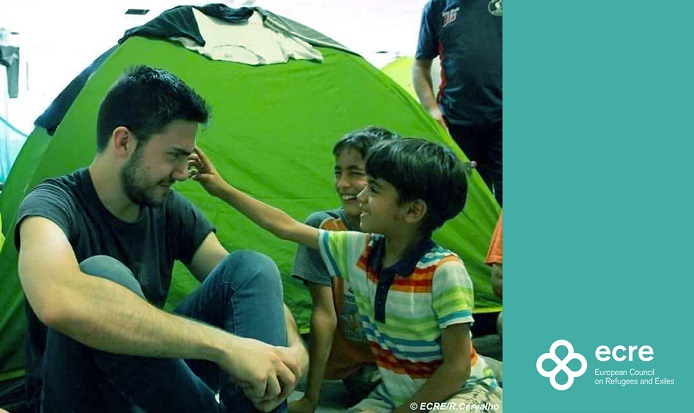The Asylum Information Database (AIDA) provides detailed comparative analysis of asylum systems in 23 countries. Through AIDA, ECRE provides up-to-date information on (a) asylum procedures, (b) reception conditions, (c) detention and (d) content of international protection in European countries. AIDA consists of detailed country reports, comparative reports, fact-finding visits investigating important protection gaps, and legal briefings providing focused analysis of key issues of asylum law and policy.
AIDA provides comparative information on legal systems, policy developments, practises and statistics across 23 countries often as the most recent and thorough source. What are the main challenges in terms of methodology, verification and research?
Comparing asylum systems means first and foremost understanding what laws and rules are in place, how administrations work, where refugees are sheltered or detained, who is available to assist them. The Common European Asylum System is an extremely elaborate and complex puzzle of EU legislation, interpreted and applied widely differently across the continent. AIDA demonstrates the need for realism and rigour in research. Comparison has no easy conclusions. It needs analysis, detail and a high degree of knowledge about the subject.
Gaps in the transparency of asylum systems are also a challenge, and a ground for civil society advocacy in themselves. Through research from ECRE and a dedicated network of national experts, we identify elements missing from the debate, obscure legal concepts or locations where migration control policies are put into practice, with civil society often being the only source of information. Our role includes not only calling governments to do more to protect refugees, but also to share more about how they’re getting there.
Since 2015 the media coverage, public debate and political attention on the topic of migration and asylum has exploded and seems often guided by emotions rather than facts. Are facts still an asset in advocating refugee rights?
A necessity, not an asset. Most political discourse on migration is entirely detached from the refugee. It claims to know her intentions, professes to predict her behaviour, but hardly ever engages with her or the bureaucratic maze that is her “safe haven”. It is facts that allow us to cast a critical eye on policy debates, to spot failed proposals recycled as “new ideas” (extraterritorial processing, controlled centres being recent reminders), to read through the smokescreens and understand their consequences on the ground.
It is also facts that allow us to make a difference and to have sound and valuable recommendations. Whether we discuss with policymakers or support litigants defending cases in court, our theory of change starts with evidence.
Civil society organisations, institutions and agencies with a pro-human rights agenda are increasingly turning to campaigning and communication activities as the key to counter the harsh narrative promoted by the populist far-right. How do you see the work of the AIDA team in that context?
The raison d’être of AIDA is “content”. Campaigning and communications are means to deliver a message, and undoubtedly crucial ones in an adverse climate for refugee rights advocates. But experience constantly reminds us that emotive fearmongering can’t be beaten at its own game. To be persuasive, advocacy has to be grounded in reality, knowledge, understanding and constructive suggestions. By investing in AIDA as a core, sustainable activity, ECRE seeks to represent a civil society that “has something to say” over “having to say something”.
This article appeared in the ECRE Weekly Bulletin . You can subscribe to the Weekly Bulletin here.

